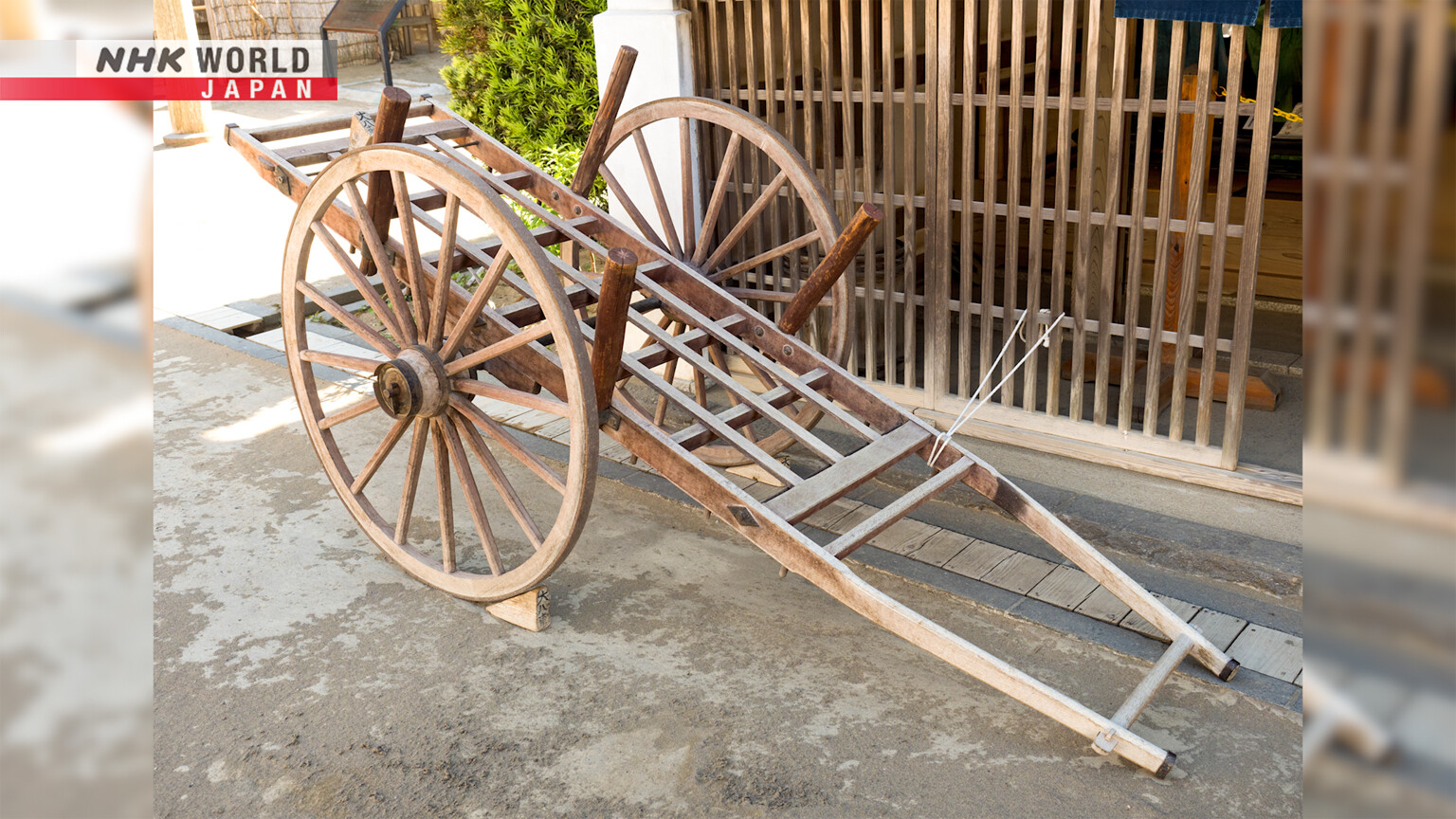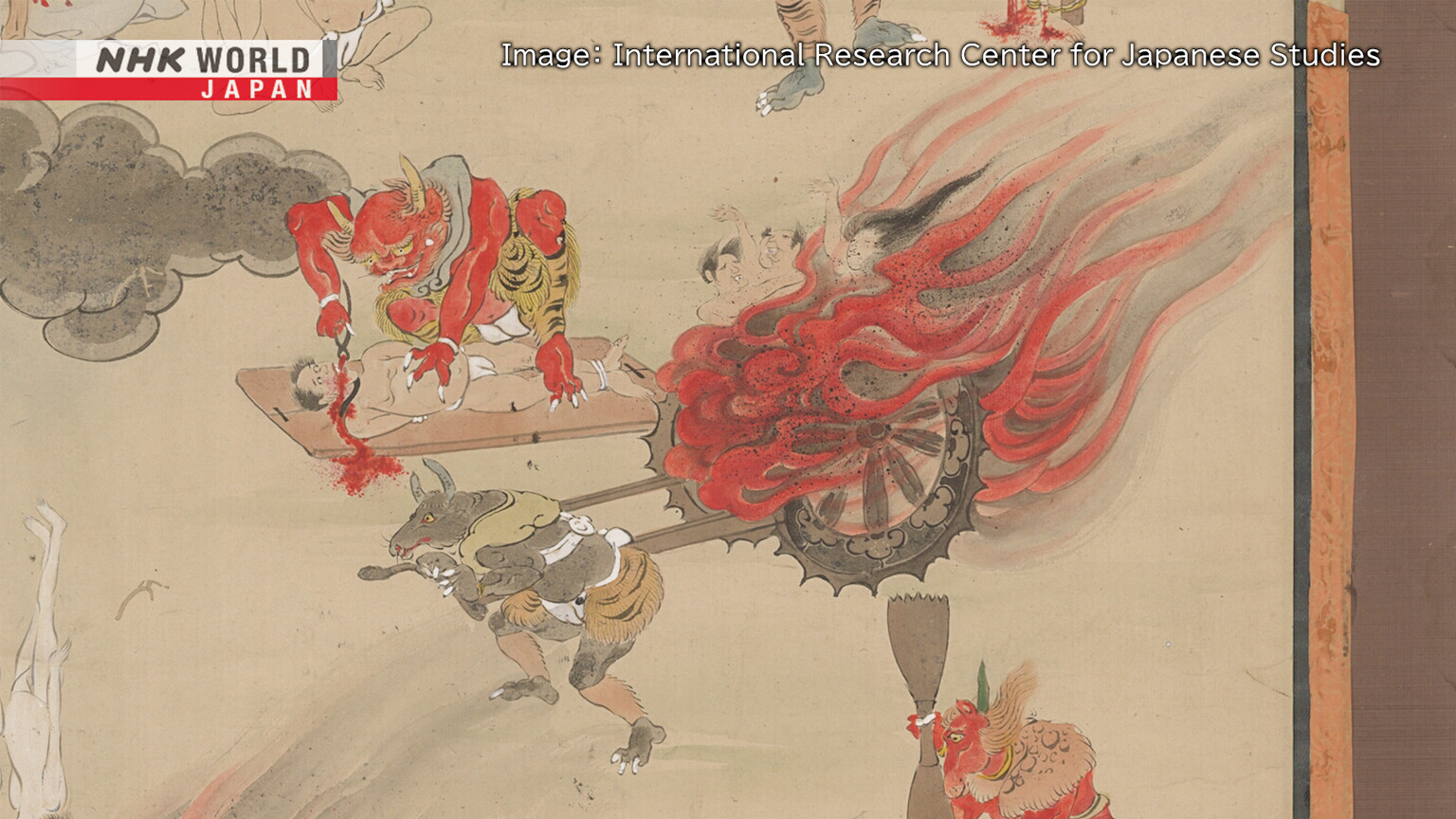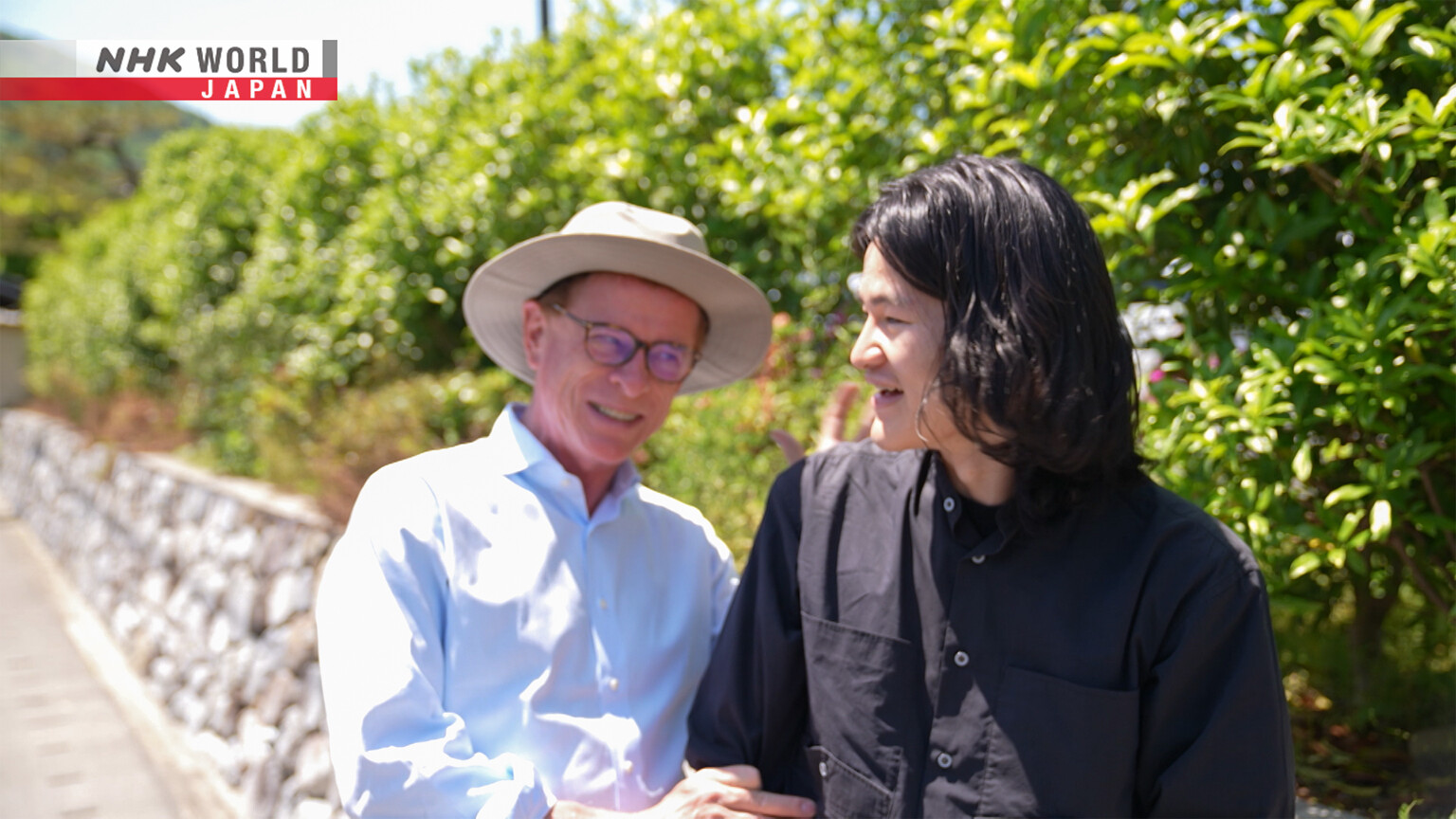Wheel
This episode focuses on kuruma, which means both wheel and wheeled vehicle. A ubiquitous word, it has rolled its way into many Japanese expressions.




Transcript
"Yukigesho"
"Karakurenai"
The Japanese language is rich in unique expressions that reflect nature and culture.
Magical Japanese.
Today's theme is "kuruma," which means "wheel" as well as "car" or "automobile."
Japan is famous worldwide for its automobiles.
In addition to autos, the word "kuruma" applies to any type of wheeled vehicle.
Hello! I'm Peter MacMillan.
Have you ever used a wheelbarrow?
It's quite handy for moving heavy loads if you're gardening or doing construction work.
In Japanese, it is called a "teoshiguruma."
"Teoshi" means "to push by hand."
"Kuruma" changes to "guruma" when combined with another word.
There are many other types of "kuruma" in everyday use across Japan.
"daihachiguruma"
Large carts like this one were commonly used until the early 20th century.
People relied on them for moving house or carrying large amounts of goods.
One explanation for the name is that it came from the length of the bed.
"Hachi" means eight, and the bed measured about eight "shaku," a traditional measuring unit.
You can still see a "daihachiguruma" on this road sign.
It signals that any type of light vehicle pulled by people, such as wheelbarrows, is not allowed.
"ubaguruma"
"Uba" means "nanny."
An "ubaguruma" is what people used to call a baby carriage.
These days, the Japanese-English word "baby car" has become more common.
"Kuruma" are quite convenient for transporting people and luggage.
As such, they are ubiquitous in Japan, not only on the streets, but also in metaphors.
"kuchiguruma"
"Kuchi" is "mouth," but it has also come to mean "word" and "speech."
"Kuchiguruma" is smooth talk that carries people away - in a negative way.
He told me he'd filmed an unidentified creature and asked if I wanted to buy the footage.
But it was a fake! I was almost taken for a ride by his "kuchiguruma" - smooth talk.
"kuchiguruma"
By the way, I don't ever want to get on this "kuruma," never!
"hi no kuruma"
"Hi" is fire.
"Hi no kuruma," or "cart of fire," refers to a burning cart that appears in Buddhist imagery.
It is believed that when sinners die, they are carried to hell on this cart.
Today, the phrase is used to vividly depict someone's struggle to make ends meet.
Because of your overspending, our finances are "hi no kuruma" - in dire straits!
"hi no kuruma"
"Kuruma" does not only refer to vehicles.
For example, we have the word "kurumaza," which refers to the shape of wheels.
It describes a group of people sitting in a circle, like a wheel, and facing each other.
Like the Knights of the Round Table, everyone is on an equal footing.
In short, it's the ideal way for a group of people to have a frank and open discussion.
"haguruma"
"Ha" means a protrusion.
And "haguruma" is a toothed wheel, or gear.
The word is commonly used for a worker who's part of a huge organization, like a cogwheel in a giant machine.
It also appears in the phrase "haguruma ga kamiawanai."
This means "the gears are not meshing," and refers to a situation where people or organizations have difficulty cooperating.
That team has a great pitcher.
Yeah. Too bad the offense and defense are "haguruma ga kamiawanai" - not working together seamlessly.
"haguruma ga kamiawanai"
This is a "jinrikisha," a proper "kuruma" with wheels, very popular among tourists.
"Jinriki" literally means "human-powered."
In other words, a person is going to be pulling it.
"Sha" is another reading for the Chinese character for "kuruma."
In the late 19th century, before there were cars, wealthy people used them for transportation.
Wheels are not enough. You also need brakes.
If you want to stop on an incline without letting your "jinrikisha" roll away, you can use these.
"hadome"
"Dome" is a stopper.
"Hadome" are brakes placed between the wheel of a cart and the ground.
From this, it has also come to mean a method or process that keeps things from going downhill.
It is often used in the negative form of "hadome ga kikanai," meaning, "unstoppable."
Food delivery services are so convenient, my use of the apps is "hadome ga kikanai" - out of control.
"hadome ga kikanai"
Japanese food is so tasty.
I can't put the brakes on my appetite!
That is why I have a big old spare tire around my midsection!
I thought I could get some exercise pulling a "jinrikisha."
"daisharin"
"Dai" means "big." "Sharin" is another word for "kuruma."
"Daisharin" is used to describe someone who works with energy.
It comes from the image of a loaded cart speeding along so fast that the big wheels are spinning furiously.
It was a hectic day, but we managed.
It's thanks to you, chef.
You made a "daisharin" - all-out-effort to fill everyone's orders quickly.
"daisharin"
"ki o itsu ni suru"
"Ki" is the distance between the wheels on either side of a cart.
It comes from Chinese and is a formal word.
"Ki o itsu ni suru" is a set phrase that describes how things are in perfect sync.
As if "ki o itsu ni suru" - in sync - with the economic recovery, consumption is also picking up.
"ki o itsu ni suru"
"kuruma no ryorin"
"Ryorin" means "both of the sharin," or "both wheels."
Just like a pair of balanced wheels is necessary for smooth travel,
this phrase describes a pair of things that is essential for smooth functioning, or progress.
"kuruma no ryorin"
What did you think of all these Japanese expressions related to wheels?
Remember that using Japanese is as important as studying Japanese.
They are "kuruma no ryorin" - the two wheels on which everything rolls.
See you next time.
Bye.